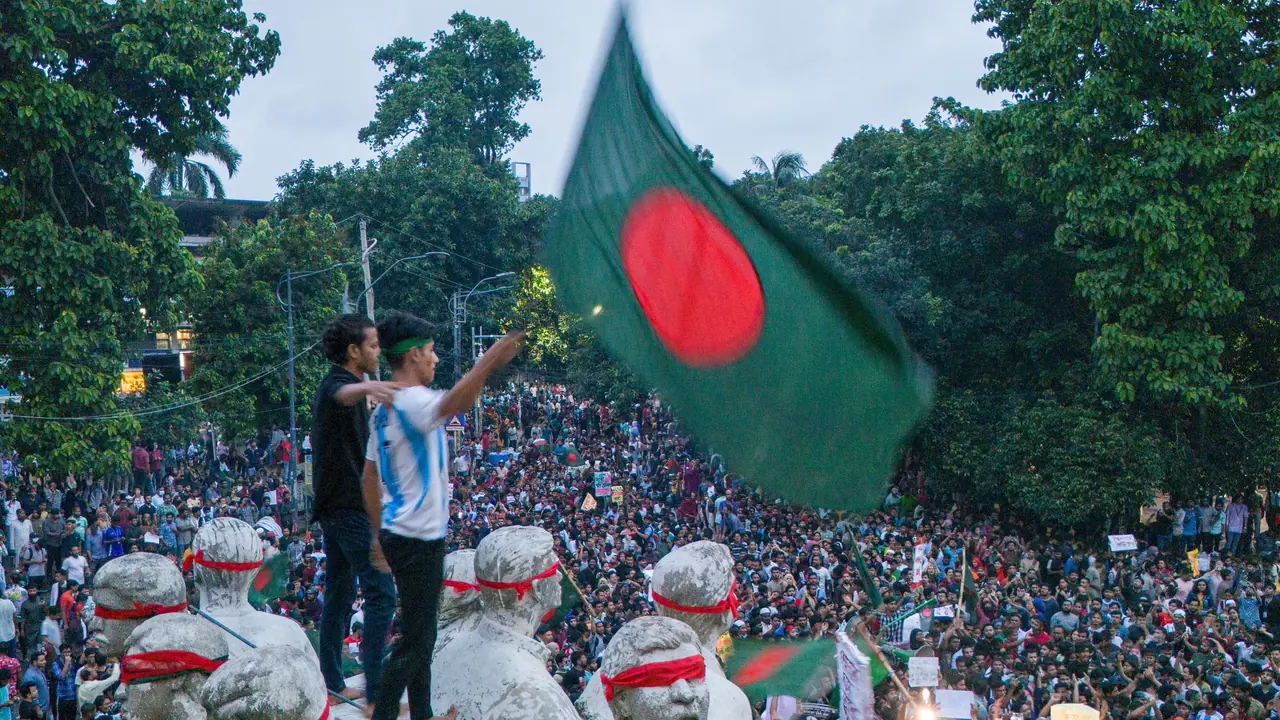Bangladesh Army chief General Waker-Uz-Zaman told the media that the Army will form an interim government and has appealed to the protesters to return to the path of peace. Sheikh Hasina has resigned as Bangladesh Prime Minister and the Army is moving to take control amid violent protests demanding that she quit.
Bangladesh’s Army chief Waker-Uz-Zaman on Monday said he will form an interim government after Prime Minister Sheikh Hasina resigned and fled Dhaka in the face of overwhelming protests. His remarks came after Hasina left the country following massive violent protests. The protestors barged into the PM Palace and looted things, according to local media reports.

“I am taking full responsibility,” the official said, dressed in military fatigues and cap, although it was not immediately clear if he would head a caretaker government. “We will form an interim government,” Waker said in a broadcast to the nation on state television, adding that Sheikh Hasina had resigned.
"PM Sheikh Hasina has resigned. Interim Government to run the country. We will return peace to the country. We ask citizens to stop violence. We will investigate all killings that have happened over the past few weeks," said Bangladesh's Army chief Waker-uz-Zaman.
He said that he met political leaders and told them army will take over responsibility for law and order. The Army chief urged the protesting students to stay calm and return home, ending conflict.
“Now the task of the students is to keep calm and help us,” he added.
Protesters demanding her resignation have, meanwhile, stormed Gono Bhaban, the Prime Minister's official residence, local media reports have said. The Bangladesh Army, it is learnt, had given a 45-minute ultimatum to the Prime Minister to step down.
The protests in Bangladesh, which began last month and escalated swiftly, started as an agitation against a quota system under which 30 per cent of government jobs were reserved for family members of Muktijoddhas -- those who fought in Bangladesh's war of independence in 1971. The protesters have said this system favours supporters of the ruling Awami League and want a merit-based system to replace it.
